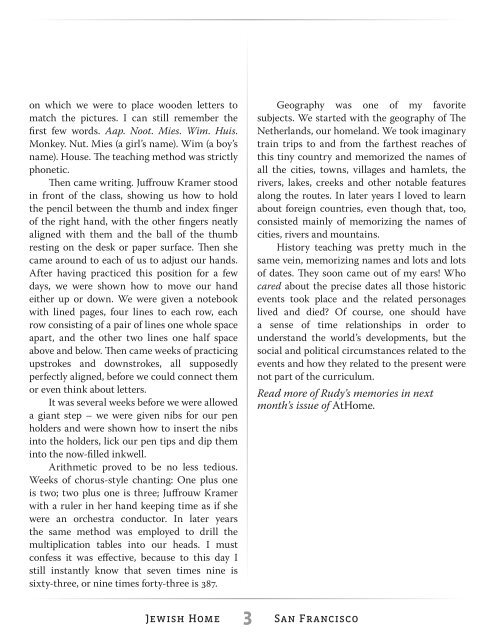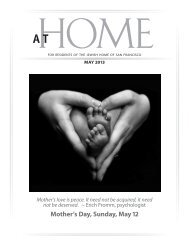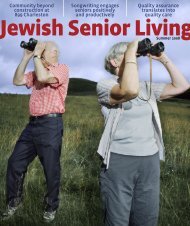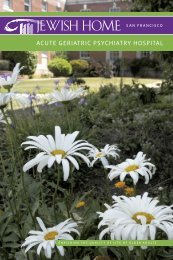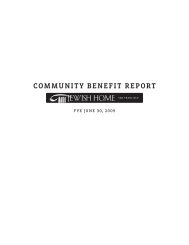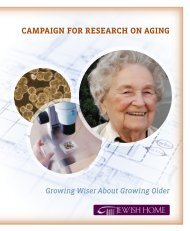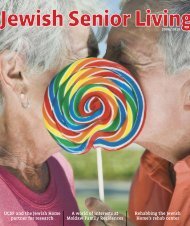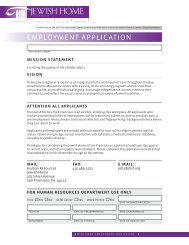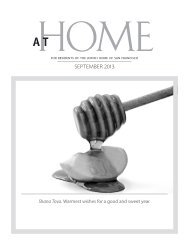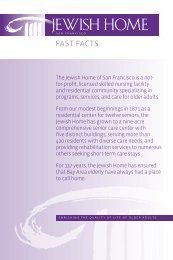âAs we express our gratitude, we must never forget that the highest ...
âAs we express our gratitude, we must never forget that the highest ...
âAs we express our gratitude, we must never forget that the highest ...
You also want an ePaper? Increase the reach of your titles
YUMPU automatically turns print PDFs into web optimized ePapers that Google loves.
on which <strong>we</strong> <strong>we</strong>re to place wooden letters to<br />
match <strong>the</strong> pictures. I can still remember <strong>the</strong><br />
first few words. Aap. Noot. Mies. Wim. Huis.<br />
Monkey. Nut. Mies (a girl’s name). Wim (a boy’s<br />
name). House. The teaching method was strictly<br />
phonetic.<br />
Then came writing. Juffrouw Kramer stood<br />
in front of <strong>the</strong> class, showing us how to hold<br />
<strong>the</strong> pencil bet<strong>we</strong>en <strong>the</strong> thumb and index finger<br />
of <strong>the</strong> right hand, with <strong>the</strong> o<strong>the</strong>r fingers neatly<br />
aligned with <strong>the</strong>m and <strong>the</strong> ball of <strong>the</strong> thumb<br />
resting on <strong>the</strong> desk or paper surface. Then she<br />
came around to each of us to adjust <strong>our</strong> hands.<br />
After having practiced this position for a few<br />
days, <strong>we</strong> <strong>we</strong>re shown how to move <strong>our</strong> hand<br />
ei<strong>the</strong>r up or down. We <strong>we</strong>re given a notebook<br />
with lined pages, f<strong>our</strong> lines to each row, each<br />
row consisting of a pair of lines one whole space<br />
apart, and <strong>the</strong> o<strong>the</strong>r two lines one half space<br />
above and below. Then came <strong>we</strong>eks of practicing<br />
upstrokes and downstrokes, all supposedly<br />
perfectly aligned, before <strong>we</strong> could connect <strong>the</strong>m<br />
or even think about letters.<br />
It was several <strong>we</strong>eks before <strong>we</strong> <strong>we</strong>re allo<strong>we</strong>d<br />
a giant step – <strong>we</strong> <strong>we</strong>re given nibs for <strong>our</strong> pen<br />
holders and <strong>we</strong>re shown how to insert <strong>the</strong> nibs<br />
into <strong>the</strong> holders, lick <strong>our</strong> pen tips and dip <strong>the</strong>m<br />
into <strong>the</strong> now-filled ink<strong>we</strong>ll.<br />
Arithmetic proved to be no less tedious.<br />
Weeks of chorus-style chanting: One plus one<br />
is two; two plus one is three; Juffrouw Kramer<br />
with a ruler in her hand keeping time as if she<br />
<strong>we</strong>re an orchestra conductor. In later years<br />
<strong>the</strong> same method was employed to drill <strong>the</strong><br />
multiplication tables into <strong>our</strong> heads. I <strong>must</strong><br />
confess it was effective, because to this day I<br />
still instantly know <strong>that</strong> seven times nine is<br />
sixty-three, or nine times forty-three is 387.<br />
Jewish Home<br />
3<br />
Geography was one of my favorite<br />
subjects. We started with <strong>the</strong> geography of The<br />
Ne<strong>the</strong>rlands, <strong>our</strong> homeland. We took imaginary<br />
train trips to and from <strong>the</strong> far<strong>the</strong>st reaches of<br />
this tiny country and memorized <strong>the</strong> names of<br />
all <strong>the</strong> cities, towns, villages and hamlets, <strong>the</strong><br />
rivers, lakes, creeks and o<strong>the</strong>r notable features<br />
along <strong>the</strong> routes. In later years I loved to learn<br />
about foreign countries, even though <strong>that</strong>, too,<br />
consisted mainly of memorizing <strong>the</strong> names of<br />
cities, rivers and mountains.<br />
History teaching was pretty much in <strong>the</strong><br />
same vein, memorizing names and lots and lots<br />
of dates. They soon came out of my ears! Who<br />
cared about <strong>the</strong> precise dates all those historic<br />
events took place and <strong>the</strong> related personages<br />
lived and died? Of c<strong>our</strong>se, one should have<br />
a sense of time relationships in order to<br />
understand <strong>the</strong> world’s developments, but <strong>the</strong><br />
social and political circumstances related to <strong>the</strong><br />
events and how <strong>the</strong>y related to <strong>the</strong> present <strong>we</strong>re<br />
not part of <strong>the</strong> curriculum.<br />
Read more of Rudy’s memories in next<br />
month’s issue of AtHome.<br />
San Francisco


